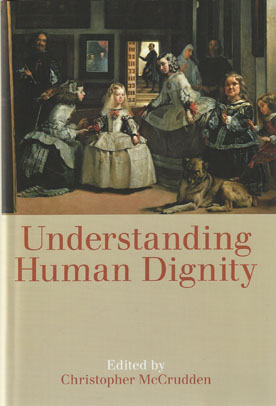
Understanding Human Dignity aims to help the reader make sense of current debates about the meaning and implications of the idea of human dignity.
The concept of human dignity has probably never been so omnipresent in everyday speech, or so deeply embedded in political and legal discourse. In debates on torture, abortion, same-sex marriage, and welfare reform, appeals to dignity are seldom hard to find. The concept of dignity is not only a prominent feature of political debate, but also, and increasingly, of legal argument. Indeed, courts tell us that human dignity is the foundation of all human rights. But the more important it is, the more contested it seems to have become.
There has, as a result, been an extraordinary explosion of scholarly writing about the concept of human dignity in law, political philosophy, and theology. This book aims to reflect on these intra-disciplinary debates about dignity in law, philosophy, history, politics, and theology, through a series of edited essays from specialists in these fields, explored the contested concept in its full richness and complexity.